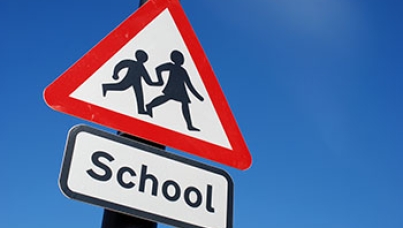Survey of secondary school and college pupils and their parents/carers in England
Ipsos was commissioned by the Department for Education (DfE) to conduct the fourth wave of the omnibus survey of pupils and their parents/carers in England. Respondents were asked about a range of issues relating to their education. Key findings are:
Extra-curricular activities
- Overall, 81% of pupils had taken part in any extra-curricular activity (either at school, outside of school, or both) in the past 12 months. ‘Sport’ is the most common activity undertaken, both at school and outside of school (mentioned by 44% and 48% of pupils respectively).
- Three-quarters (72%) of college students reported taking part in any extra-curricular activity in the past 12 months. Like school pupils, the focus both at and outside of college are clubs related to sport.
Learning about government and politics
- Pupils were most likely to say they would prefer to learn about government and politics at school through the subjects that they study (38%), school trips (32%) and from guest speakers (e.g. politicians, campaigners; 32%).
Bullying
- The proportion of school pupils who reported being a victim of bullying at school at least once a month in the last year is lower at wave 4 (20%), compared with wave 2 (33%). Conversely, the proportion of parents/carers who said their child had been a victim of bullying at least once a month is higher at wave 4 compared with wave 2 (16% and 9%, respectively).
- 12% of college students reported being a victim of bullying at school or college at least once a month in the last year, and 7% of their parents/carers said that their child had been a victim of bullying.
Mental health
- When asked to think about how their school/college supports mental health, pupils and students were most likely to report that their school/college ‘has a specific member of school/college staff that I can talk to if I have a problem or worry’ (79% and 78% ‘true’ respectively), and ‘encourages staff and pupils/students to care for, and look after each other’ (79% and 78% ‘true’ respectively).
- The majority of parents/carers said they ‘don’t know’ whether their child’s school/college had or offered the types of mental health support listed.
Changes to GCSEs
- Nearly all school pupils in year 9 and above (97%) said they had heard about the grading changes to GCSEs, demonstrating an increase in awareness from 85% in wave 1. Awareness of the reforms to GCSEs has also increased amongst parents/carers of school pupils, rising from 72% in wave 1 to 91% in wave 4.
- Almost all college students (94%) had also heard about the government’s reforms to GCSEs, and the proportion was only slightly lower among their parents/carers (88%).
Subject and qualifications choice
- Pupils were most likely to say they had chosen humanities, design and technology and arts GCSEs because they enjoy them (56%, 71% and 85%, respectively). This was also the case among college students (59%, 74% and 86%, respectively).
- Pupils were most likely to say they had chosen a foreign language GCSE because they had to at their school (50%). This was also the case for college students (46%).
Careers and aspirations
- School pupils and college students both highlighted parents/carers as their main source of careers’ advice and as being the most ‘helpful’ source of advice (71% and 83%, respectively).
- School pupils and college students were asked to think ahead to their future career or job, and select up to three responses which reflect their main priorities. The overriding consideration for school pupils was to be able to do ‘A career or job I enjoy’, mentioned by 76%, followed by ‘earning a good wage’ (72%). College students’ key priorities were similar. However, they were significantly more likely to highlight the importance of achieving ‘A good work-life balance’, than school pupils (48%, compared with 35%).
Report and Data
Technical Note
This fourth wave of the omnibus survey of pupils and their parents/carers surveyed a nationally representative sample of young people at secondary schools and colleges in England. A postal push-to-web approach was used, using the National Pupil Database (NPD) as a sampling frame for secondary school pupils (at state-funded schools), and the Individualised Learner Records (ILR) as a sampling frame for college students. In each household, two separate questionnaires were administered: one to the school pupil or college student, and one to their parent/carer. All respondents self-completed the questionnaire. Wave 4 was soft-launched to a subset of the sample on Monday 27th November 2017. The main fieldwork began on Monday 4th December 2017, and closed for all respondents on 31st January 2018.




